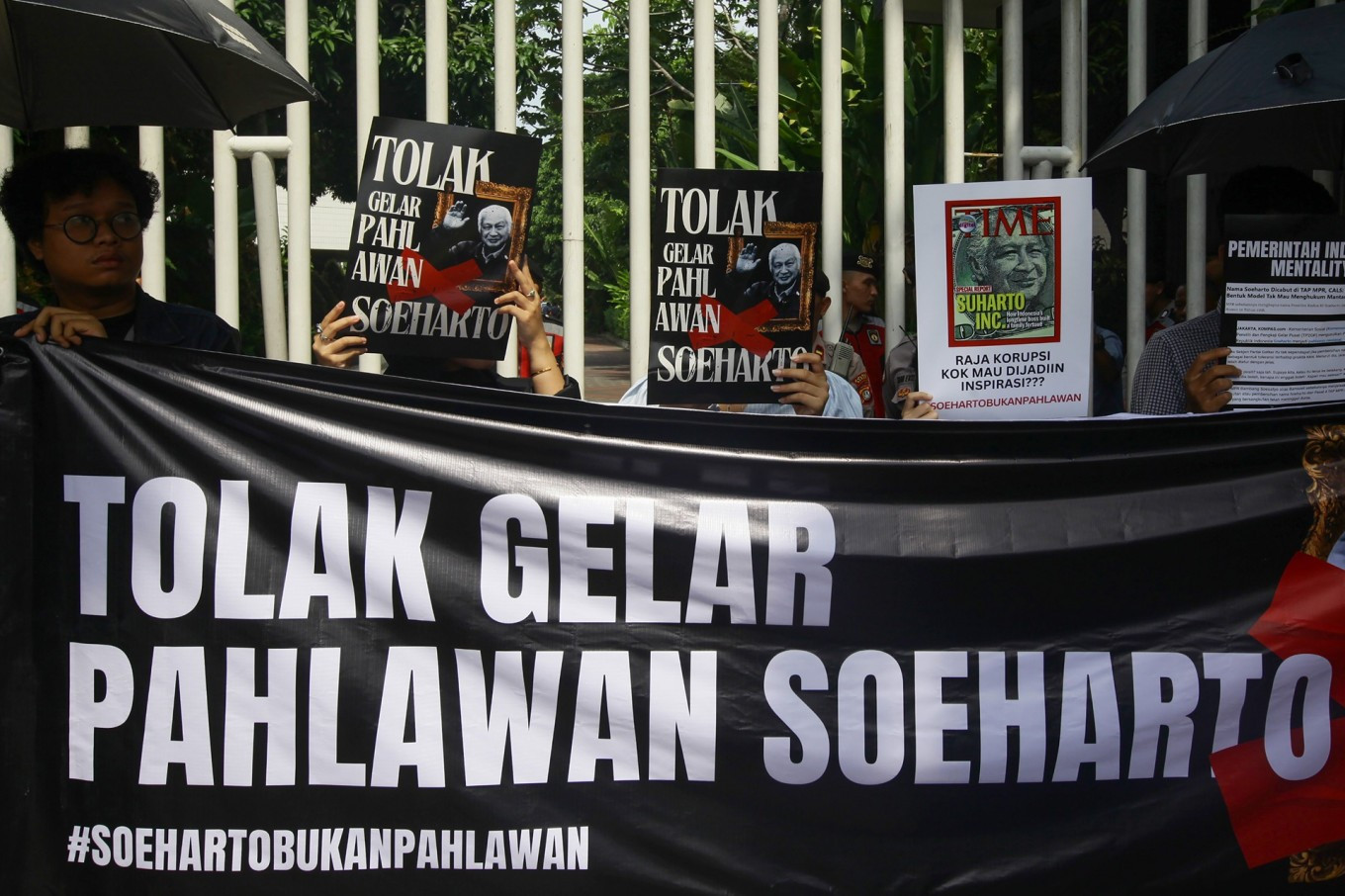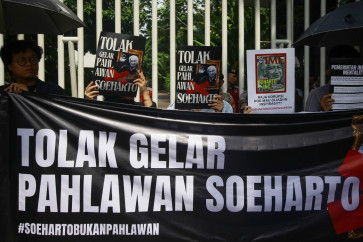Popular Reads
Top Results
Can't find what you're looking for?
View all search resultsPopular Reads
Top Results
Can't find what you're looking for?
View all search resultsAnalysis: Soeharto, national hero? Rehabilitating corruption, repression
Change text size
Gift Premium Articles
to Anyone
B
arring any last-minute political twists, President Prabowo Subianto's administration appears poised to crown Indonesia's second president and Prabowo's former father-in-law Soeharto as a national hero. The move would mark a dramatic turn in the country's reckoning with its authoritarian past, as no previous president had dared to officially honor the man whose 32-year rule was synonymous with repression, corruption, and nepotism.
Soeharto's name tops a list of 40 figures nominated by the Social Affairs Ministry, alongside his political rivals, the fourth president Abdurrahman "Gus Dur" Wahid and former Jakarta governor Ali Sadikin, as well as slain labor activist Marsinah, who was murdered during Soeharto's rule. The final decision rests with Culture Minister Fadli Zon, Prabowo's close ally and head of the Council for Titles, Medals and Honors. Fadli has said all nominees meet the criteria for hero status and promised to announce the selections before National Heroes Day on November 10.
The inclusion of Soeharto's name has triggered sharp backlash from civil society groups, human rights activists, and survivors of state violence. Protesters have gathered outside the Social Affairs Ministry, while online campaigns highlight the regime's atrocities. Under Soeharto's New Order, the military orchestrated some of the country's darkest chapters, including mass killings, disappearances, and extrajudicial executions, under the banner of stability and development.
The bloodshed began soon after Soeharto seized power in 1965, when the army blamed the Indonesian Communist Party (PKI) for an alleged coup attempt. In the ensuing purge, hundreds of thousands, possibly millions, of Indonesians were killed by the military and allied paramilitary groups, many for nothing more than being accused of leftist sympathies or Chinese descent. Historians estimate the death toll at anywhere from several hundred thousand to 3 million.
Two decades later, bodies again turned up in cities across Java and other regions in what became known as Petrus, short for "mysterious shootings". The regime at first blamed gang wars but later admitted to orchestrating the killings as a "shock therapy" to deter crime, another example of how Soeharto wielded fear as a political tool.
Rehabilitating Soeharto's image as a national hero risks normalizing those abuses and rewriting history. It would signal official forgiveness, not only for the massacres and political repression, but also for the culture of collusion and corruption that flourished under his rule.
Soeharto's regime blurred the line between state and personal enrichment. He granted monopolies, licenses and contracts to allies and cronies, most notably Liem Sioe Liong, founder of the Salim Group, in exchange for loyalty and financial backing. According to Liem Sioe Liong's Salim Group: The Business Pillar of Suharto's Indonesia by Richard Borsuk and Nancy Chng, their relationship epitomized the fusion of power and money that sustained the New Order.



















